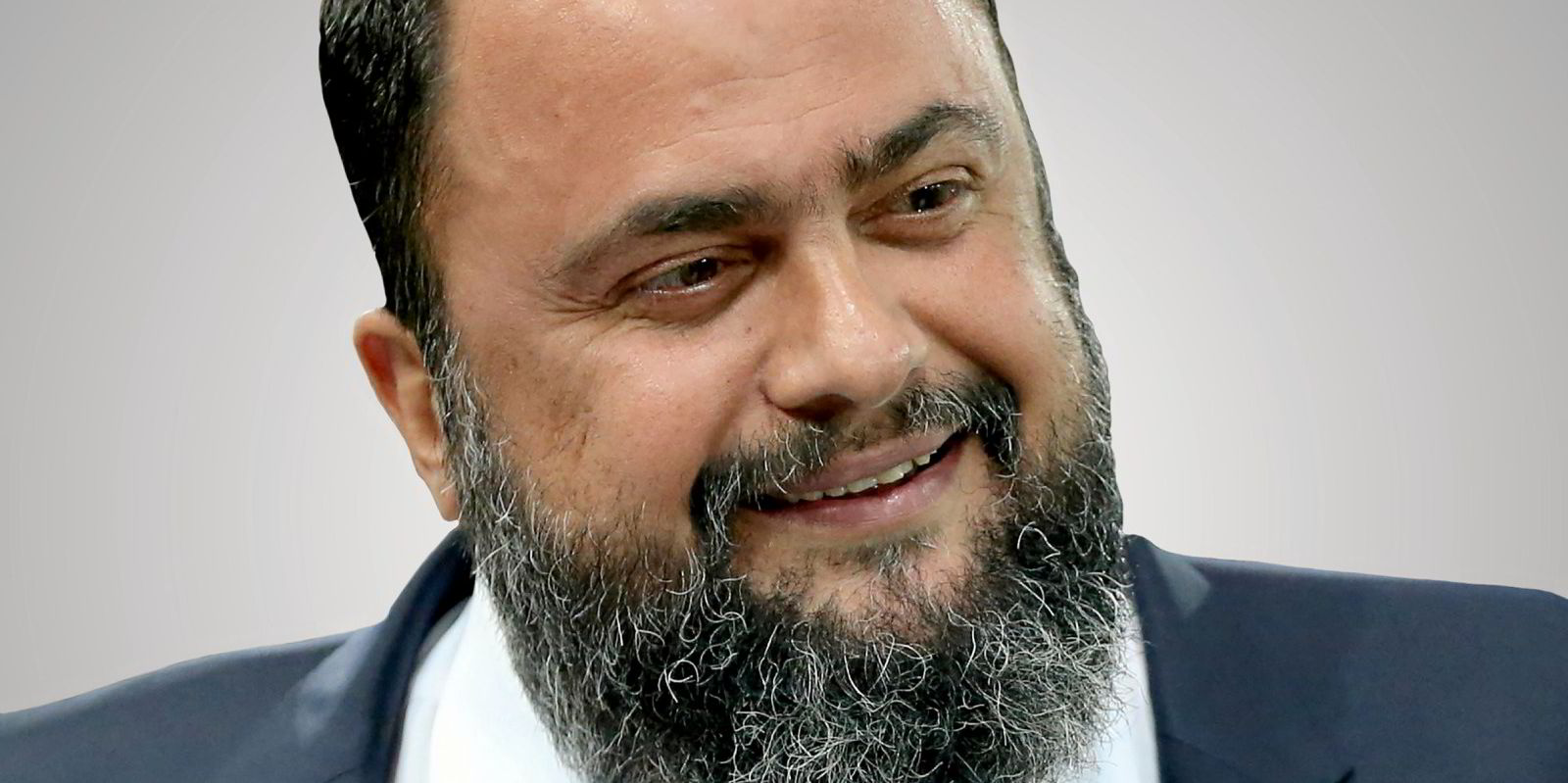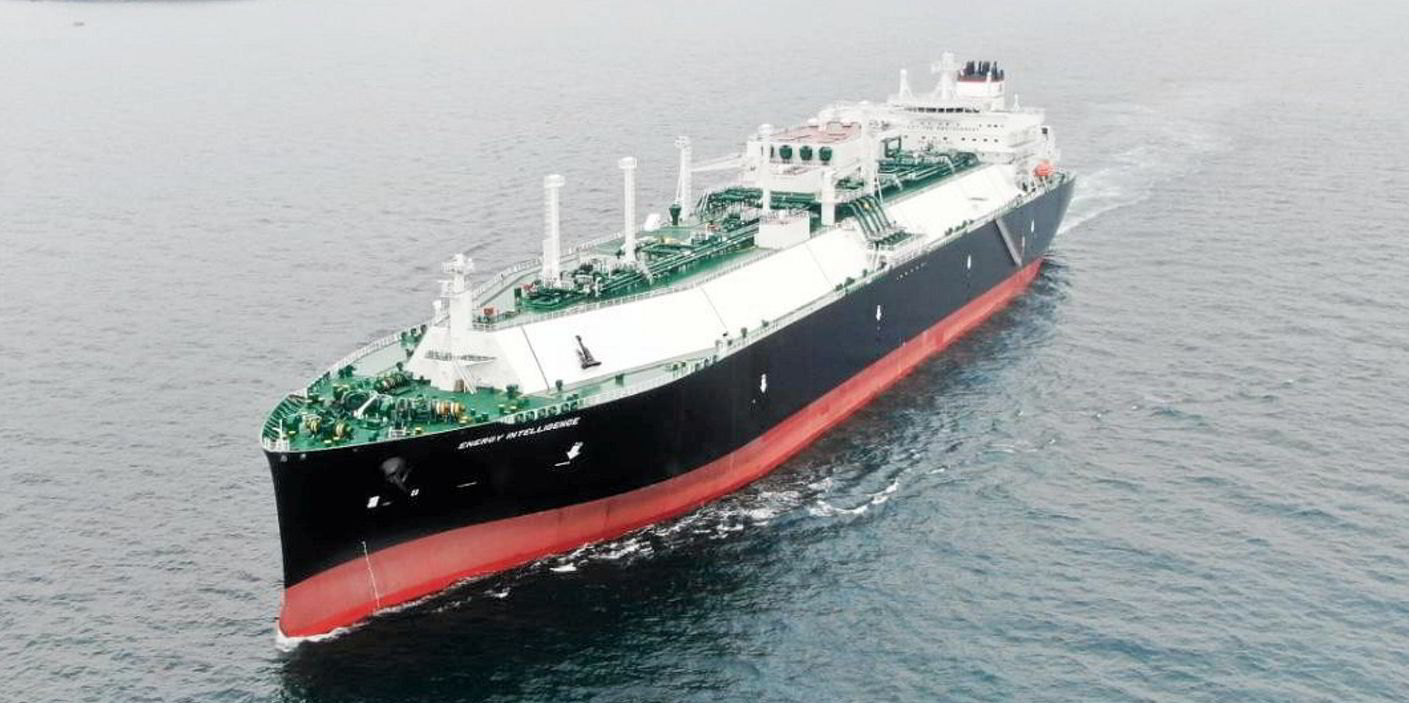If further proof was needed that natural gas mania has gripped Europe amid Russia’s war on Ukraine, it was on display last month in the remote northern Greek city of Alexandroupolis.
Top European Union policymakers and leaders from four Balkan states travelled there for a groundbreaking ceremony for a run-of-the-mill floating storage and regasification unit facility backed by LNG carrier company GasLog.
This article is part of our Greece Business Focus, an annual look at what’s happening in the country’s shipping sector as the industry gears up for the Posidonia conference.
Read the full report when it is published on 3 June.
The project had been moving at the snail’s pace that Greek bureaucracy is infamous for.
However, the delay has proved a blessing in disguise.
When the FSRU starts operating two years from now, its shareholders can expect it to work overtime at hefty margins, given Europe’s anxiety to wean itself off pipeline natural gas from Russia.
GasLog principal Peter Livanos is not the only Greek player to strike it lucky with LNG.
Greek shipowners’ entry into the business over the past few years is proving uncannily prescient.

Evangelos Marinakis is perhaps the most characteristic case. Founded in 2019, his Capital Gas outfit ordered a dozen such ships, scheduled for delivery between 2020 and 2024.
The first six have been dropped down to US-listed affiliate Capital Product Partners (CPLP), which previously focused exclusively on container ships.
“Our decision to diversify our asset base into the LNG market has proven very timely,” CPLP chief executive Jerry Kalogiratos said on the day his company reported net income more than doubling in the first quarter of the year.
Five-year time charters are being negotiated in the market at between $85,000 and $95,000 per day for two-stroke LNG carriers, Kalogiratos told analysts on 6 May.
With US President Joe Biden promising to provide Europe with an extra 50bn cbm of shipped gas by 2030, the bonanza looks assured for years to come.
Europe’s desire to wean itself off Russian gas by building new LNG infrastructure offers a way out even to shipping companies highly exposed to Moscow-linked projects.
Dynagas LNG Partners, five of whose six large LNG carriers are on long-term charters involving such partners, appears ready to convert part of its fleet to FSRUs.
Greece’s other big shipping clans are also smiling. Angelicoussis, Martinos, Procopiou, Economou and Tsakos family companies have all invested heavily in the sector in recent years and can now expect to reap rich rewards.
Jump to 20%
Gas carriers have been the most rapidly expanding sector of Greek shipping.
According to IHS Markit data commissioned by the Greek Shipping Cooperation Committee, the share of Greek-owned gas carrier tonnage as part of the world total jumped by four percentage points in a single year to March 2022, to 15%.
According to data extracted from the annual LNG report of the International Gas Union, an industry association, Greek owners accounted for 16.1% of the total LNG fleet at the end of 2017 in terms of ship numbers.
Two years on, that share had jumped to 20%.
Greek players lucky or prescient enough to have commissioned new ships at prices at about or less than $200m apiece are now seeing newbuilding prices for large LNG carriers explode to $225m.
Some are devising innovative ways to fund their growth. CPLP directly sold bonds to Greek investors, raising €150m ($156m) on the Athens Stock Exchange in five-year, unsecured paper that pays a coupon of 2.65%.
Domestic institutional and retail investors lapped up the issue, which was only the second bond sale ever by a Greek shipping company in its home country’s financial market.
A combined fleet of 54 LNG carriers on the water and under construction may have made it easier for top industry player Maria Angelicoussis to become one of the few Greek owners to publicly self-sanction for Russian oil.
The only thing that could spoil the party is regulation.
Concerns prompted even the Greek government to propose putting a ceiling on shipping transport costs of LNG in the EU.
Caps on LNG transportation costs should perhaps be introduced “to disincentivise speculation”, Prime Minister Kyriakos Mitsotakis proposed in a letter to European Commission president Ursula von der Leyen.
The proposal had not got anywhere as this report went to press. Greece is a relatively small country with limited influence in the EU.
However, it highlights that some EU countries do not shy from proposing far-reaching regulation of energy markets in response to Russia’s invasion of Ukraine, which sent energy prices and inflation rates soaring.
As energy costs rise, such voices may become louder.



